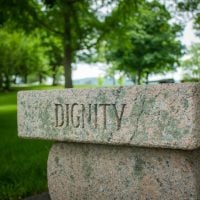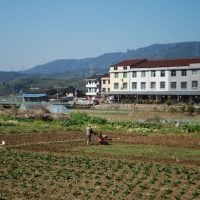Deadline: 15-Jan-24
Recognizing the value of partnerships and diverse lenses in the design and execution of locally-steered landscape-seascape strategies, the Small Grants Programme (SGP) of the Global Environment Facility (GEF) is calling for proposals for the development of the Country Programme Strategy for the upcoming SGP 8th Operational Phase in the Philippines.
The Global Environment Facility (GEF) Small Grants Programme (SGP) provides civil society and community-based organizations (CSOs/CBOs) in developing countries with grants to enable them to tackle global environmental challenges while addressing local sustainable development needs. SGP is a GEF corporate programme implemented by UNDP. SGP Philippines started financing projects in 1992. Since then, it has succeeded in funding and providing technical support for more than 320 grant projects.
This call for proposals is to solicit civil society organizations to put forward proposals that help SGP Philippines undertake a preparatory process to develop its strategy for OP8 Part 1. This will involve multi-stakeholder consultations, development of baseline assessment(s) of priority identified landscape(s)/seascape(s), and elaboration of the Country Programme Strategy (CPS) for OP8 in close coordination with the SGP National Coordinator and National Steering Committee in the Philippines.
Funding Information
- The maximum amount per grant award for the entire project will be limited to $25,000, with applicants required to provide a detailed budgetary estimate.
Key steps in the OP8 Country Programme Strategy Elaboration Process
- Step 1.OP8 Part 1 Philippines Country Programme Strategy consultations and Scoping exercise
- To initiate the development of the SGP OP8 Country Programme Strategy in the Philippines (OP8 CPS), an assessment and scoping exercise should be undertaken which will take stock of the results and achievements of the SGP country programme thus far and identify the priority directions for programming in OP8 in line the SGP OP8 Part 1 project document, the country’s national priorities, GEF-8 programming directions, and potential for synergy with UNDP and other partner agencies.
- This CPS consultation and scoping process will extend beyond the NSC to involve relevant stakeholders from government, civil society, UNDP country office, sector agencies and other partners. Its purpose is to identify the gaps and opportunities of SGP for programming in OP8 in order to focus the programme to deliver the strategic impact expected in terms of the OP8 directions and initiatives.
- This process will include the following broad elements:
- Communications, outreach and capacity development about OP8 and its strategic initiatives. Such communications should serve to explain the need to focus SGP on landscape/seascape areas for achievement of greater strategic impact through clustering of projects and achievement of synergies.
- Multi-stakeholder consultations. This consultation process should include the NSC, TAG and other relevant partners from government, civil society, UNDP, partner agencies etc. in order to achieve a broad consensus on the country programme approach in OP8.
- Selection of the landscape/seascape area(s) of focus, with consideration given to SGP’s niche, opportunities, challenges, and potential for synergies, etc. Depending on country size and grant resources available country programmes may select one or more landscapes or seascapes.
- Grant-making outside the selected landscape/seascape area(s). In OP8, some grant resources might be allocated outside of the landscape/seascape areas. Criteria for prioritization of projects and a typology of projects might be identified in the General Evaluation and Scoping Exercise. For example priority might be given by the country programme to grants outside the landscape/seascape area(s) that:
- Projects that promote innovation in relation to SGP OP8 strategic initiatives and directions
- Projects that provide new opportunities for partnerships and replication.
- Help translate landscape lessons into policy or promote uptake
- CSO-government dialogue platforms that promote civil society engagement with government in the context of multilateral environmental agreements
- Key outputs to be produced at this stage would include: (a) a short report documenting the consultation and scoping process with key agreements on the CPS approach recorded, and (b) a draft outline of the CPS already developed to the extent possible with the landscape/seascape approach still to be fully elaborated in Step 2.
- Step 2. Selected Landscape/Seascape Baseline Assessment
- The Landscape/Seascape Baseline Assessment process will be guided by the CPS Consultation and Scoping Exercise in the country which lays out the consensus for the priorities and planning for delivering OP8 Part 1 outcomes in the country. 2 The Landscape/Seascape Strategy developed for each country programme will describe the landscape approach for supporting global environmental activities in line with the selected strategic initiatives in the SGP Country Programme Strategy that contribute to sustainable development at the community level.
- The objective of the baseline assessment is to assist SGP National Coordinators and National Steering Committees a) to elaborate a landscape/seascape-wide baseline, b) to develop a landscape/seascape strategy that will guide grant-making with typology of projects proposed, and sets of indicators for selected SGP strategic initiatives identified. The baseline assessment provides information about the current state of the landscapes/seascapes, through consultations with local communities and stakeholders which can be used as a basis for setting goals and desired outcomes.
- The baseline assessment will include the following key elements: a)
- Baseline analysis. Identification of the landscape/seascape context and background, including threats to the global environment, sustainable development, and key actions and plans underway, and identification of relevant stakeholders within and outside the landscape who need to be involved and play a role.
- Elaborating SGP OP8 Part 1 Strategic initiatives within the landscape/seascape context. Based on results of the CPS Consultation and Scoping process, the country will have identified the selective strategic priorities for grant-making. Within the Baseline Assessment the implementation of the priority OP8 strategic initiatives selected by countries will be elaborated within the landscape/seascape context with (a) typologies of projects developed, (b) indicators and targets and results framework developed.
- Modalities for implementation will be proposed, such as possibilities for linking and connecting projects within the landscape for learning and exchange, fostering engagement with local authorities, identifying policy influence and scaling up opportunities, promoting participatory M&E that enables community involvement, and facilitating knowledge management and capture and dissemination of results.
- As a key output of the Landscape/Seascape Baseline Assessment process a report will be produced that will present the baseline analysis, the elaboration of the SGP strategy within the landscape and the modalities for implementation. The report will also present the consultative process followed and the results of community consultations held. This report will be presented to the NSC and NC and may be prepared in the national languages as appropriate (note it will not be required for review by the SGP Central Programme Management Team (CPMT) at SGP headquarters).
- Step 3. Country Programme Strategy Finalization
- Based on the above steps and once the Baseline Assessment process for the selected Landscape/Seascape area(s) of focus has been completed and agreed, the SGP OP8 Country Programme Strategy (CPS) will be fully elaborated and finalized. A draft of the complete CPS (no more than 25 pages in total length) will be produced for review and comment by the NC and NSC. It will also be shared for review and approval by the CPMT. Any final comments from the NSC and CPMT will be taken into account and addressed in the final draft of the CPS which will then be widely shared and posted online for public information.
Who may submit proposals?
- The project may be undertaken by an appropriate, experienced national or subnational NGO or academic institution as an on-the-ground capacity building project and financed by a grant. The proposal will clearly present the experience of the applicant and its partner organizations in the issues to be addressed.
Competencies
- Demonstrated capacity for strategic thinking and analysis
- Proven experiences in working with community-led initiatives as well as experience in community and stakeholder participatory processes.
- Expertise on global environment and sustainable development issues
- Expertise in landscape/seascape management
- Proven capacity to produce high quality qualitative research and ability to absorb, analyze and synthesize large amounts of complex information within tight deadlines.
- Strong presentation and facilitation skills.
- Exceptional writing skills of policy and communication materials for a variety of audiences, including the civil society and policymakers.
- Excellent writing, presentation, communication and facilitation skills in English, French or Spanish, as well as relevant national languages in the countries where SGP operates.
For more information, visit UNDP.









































